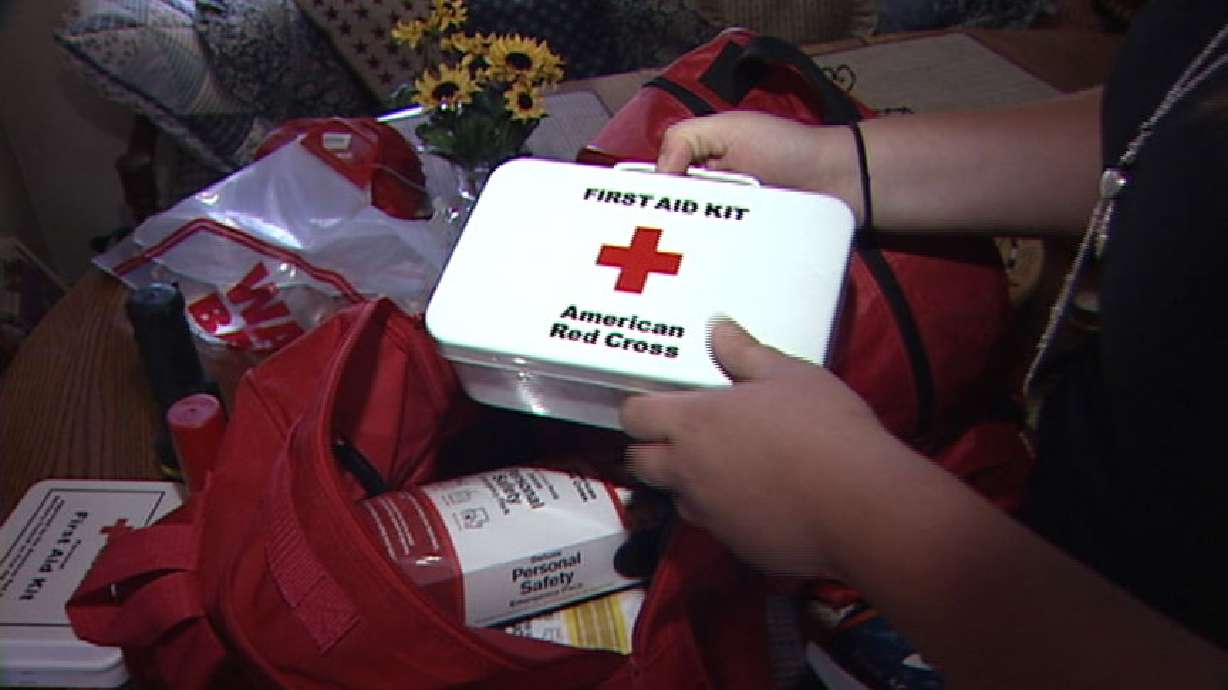Estimated read time: 3-4 minutes
This archived news story is available only for your personal, non-commercial use. Information in the story may be outdated or superseded by additional information. Reading or replaying the story in its archived form does not constitute a republication of the story.
SALT LAKE CITY — Emergency preparedness to many people means food and water, but there is a third important element in being prepared: first aid.
In some types of emergency, it is likely that there will be injuries or other medical needs that will need to be addressed. If you're not prepared, it may be difficult to help yourself and those around you.
That being said, first aid does not take the place of professional medical care. If medical care is available, seek it out rather than trying to help someone with injuries above your level of expertise.
It's a good idea to have a complete first-aid kit in your home and a more travel-friendly kit for your car.
Home first-aid kit
Your most valuable tool in your kit may be a first-aid handbook. Beyond that, Disaster First Aid's website has a comprehensive list of supplies for a complete first-aid kit. It covers everything from gauze to duct tape and prescription medications.
In addition to their list, consider adding several bottles of rubbing alcohol and hydrogen peroxide, wooden splints, tweezers, a whistle and baby wipes. Your first-aid kit may also be a good place to keep personal hygiene items like extra toothbrushes and shampoo.
Related Story
For more advanced first-aid kits, triage kits include supplies for surgical procedures that might be needed in an emergency.
It's easy to start small and build up your supplies on a weekly or monthly basis. Invest in a water-proof box to keep your supplies organized, therefore easier to use when needed.
Car first-aid kit
A car first-aid kit is simply a travel-size version of what you have at home. There are ready-to-purchase kits made specifically for cars, but make sure to add items that may not be included in the kit.
Alternative first aid
Some alternative types of first aid, like herbs and essential oils, have been known to help in healing for thousands of years, and may worth researching.
For example, lavender oil has been known to help relieve and heal burns, and rubbing a small amount of peppermint oil on the temples can help relieve headaches.
#Poll
First-aid classesBoth first-aid and CPR classes are essential in knowing how to act in an emergency. If you already know CRP, consider taking a refresher course, because CPR procedures have been updated over the years.
The Red Cross provides first-aid, CPR and other training classes online. Some are free, but most have a modest fee.
There are also local classes in every county of the country through the American Red Cross. To find a class close to you, visit their website's "Find Your Local Red Cross" page.Valerie Steimle is the mother of nine children who lives happily on the Gulf Coast of Alabama. She is the author of five books, all about strengthening the family, including "Thoughts from the Heart." Email: valeriesteimle@yahoo.com









